Custom Flat Roof Systems
Flat roof constructions are a common choice for commercial and industrial buildings, offering a cost-effective and versatile roofing solution. They provide easy access for maintenance and equipment installation, making them a practical option for many structures. Understanding the various aspects of flat roof constructions can help property owners and builders make informed decisions about design, materials, and installation processes.
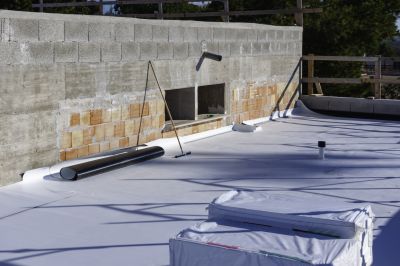
Various materials such as built-up roofing, single-ply membranes, and modified bitumen are used to construct flat roofs, each offering different benefits in durability and cost.
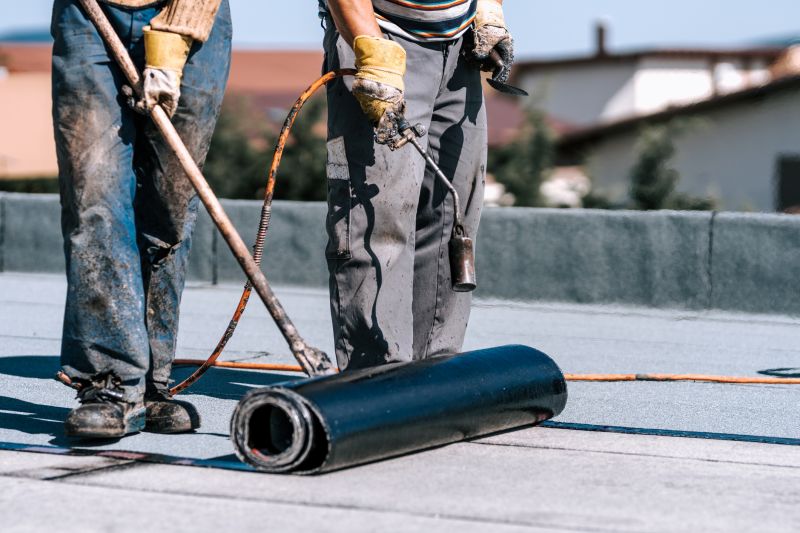
The installation process involves careful planning, surface preparation, material application, and finishing to ensure a durable and weather-resistant roof.
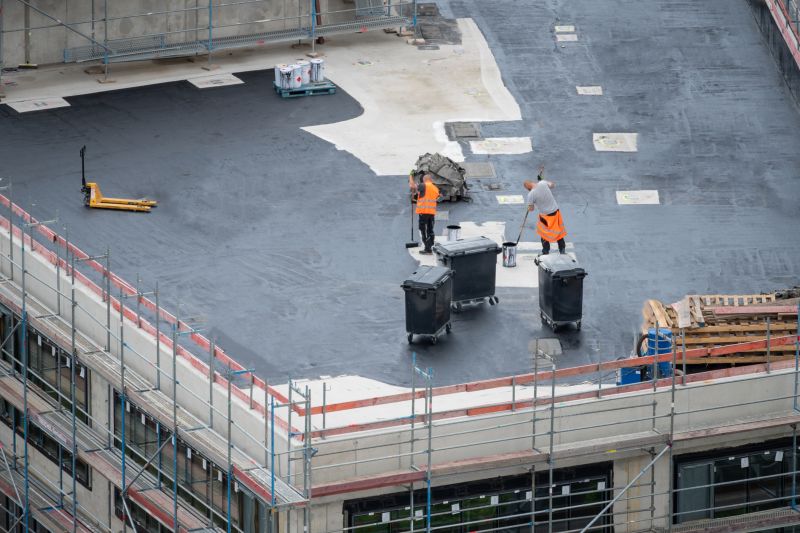
Showcasing successful flat roof constructions, highlighting the quality of work and variety of designs suitable for different building types.
Flat roof constructions are characterized by their low slope, typically less than 10 degrees, which allows for efficient use of space and easy access for maintenance. The longevity of a flat roof depends on the materials used and the quality of installation. Proper drainage systems are essential to prevent water pooling and potential damage. Advances in roofing technology have improved the lifespan and performance of flat roofs, making them a reliable choice for many building owners.
The installation of a flat roof generally takes between one to two weeks, depending on the size and complexity of the project. Skilled professionals follow a systematic process that includes surface preparation, waterproofing, insulation, and final finishing. Hiring experienced contractors ensures that the construction meets all standards for safety and durability, reducing the likelihood of future issues.
Professionals ensure proper installation, which extends the lifespan of the roof and minimizes potential leaks and damages.
Effective drainage prevents water accumulation, reducing the risk of structural damage and increasing the roof’s durability.
Materials such as EPDM, TPO, PVC, and built-up roofing are popular choices, each with unique properties suited to different building needs.
Costs vary based on material selection, roof size, complexity, and labor, but investing in quality installation can lead to long-term savings.
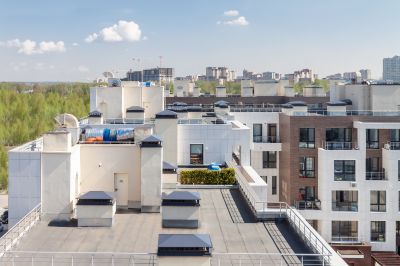
A modern commercial building showcasing a seamless flat roof with durable membrane material.
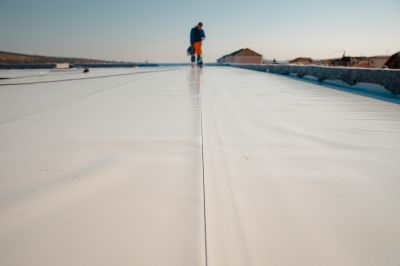
Routine inspections and repairs to ensure the longevity of the flat roof.
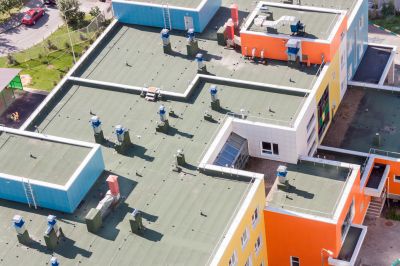
A flat roof equipped with HVAC units and other building systems, demonstrating practical use of space.
Choosing to hire a professional for flat roof construction ensures adherence to safety standards and building codes, resulting in a reliable and long-lasting roof. Proper installation techniques and quality materials are crucial in preventing issues such as leaks, ponding, and structural damage. Engaging experienced contractors can also streamline the process, reducing delays and ensuring the project meets all specifications.
For those interested in flat roof constructions, obtaining a detailed quote can clarify costs and project scope. Filling out the contact form provides an opportunity to discuss specific requirements, receive expert advice, and plan for a durable and efficient roofing solution.



